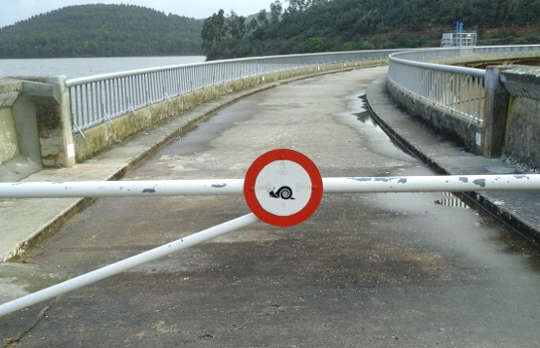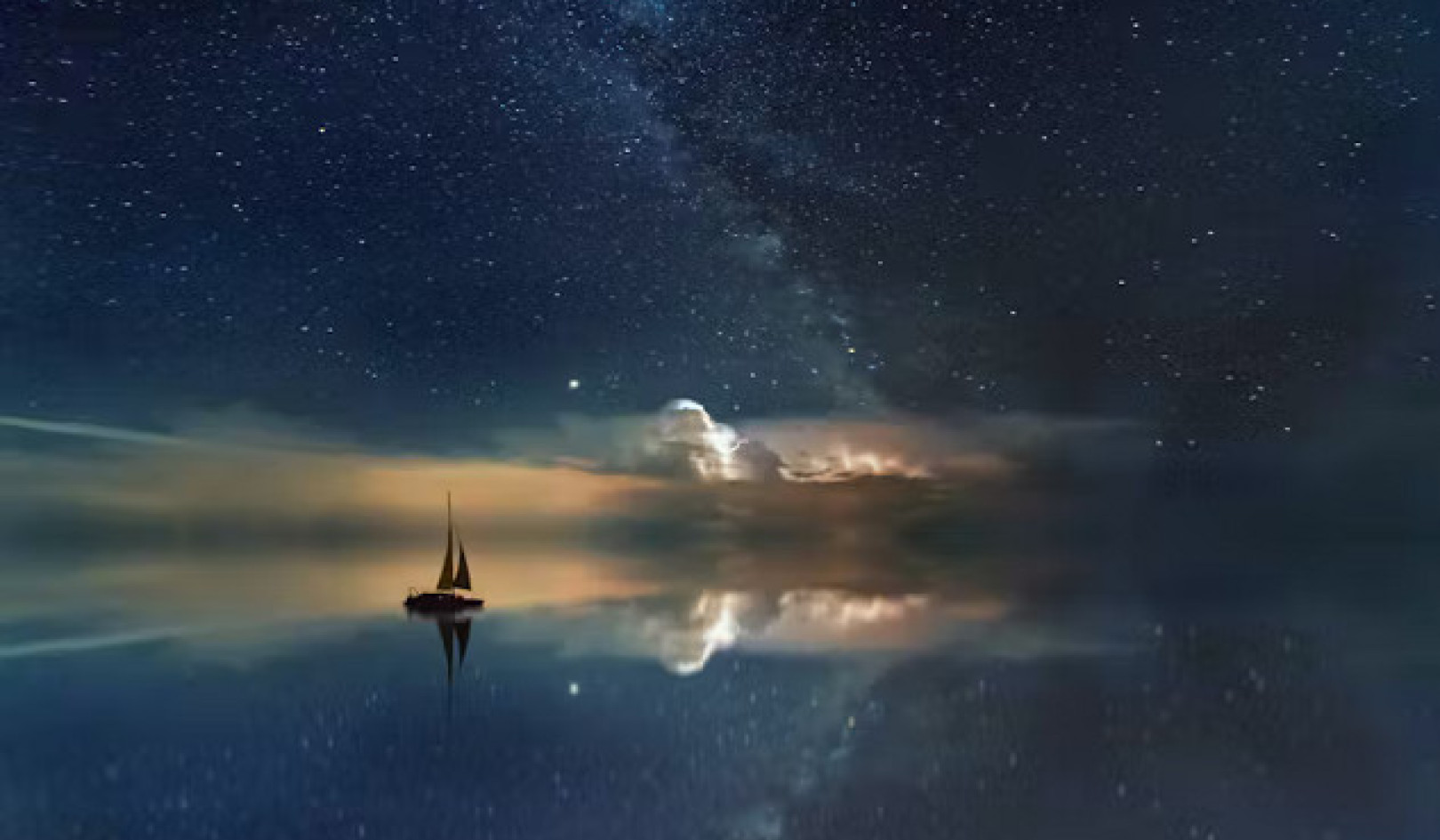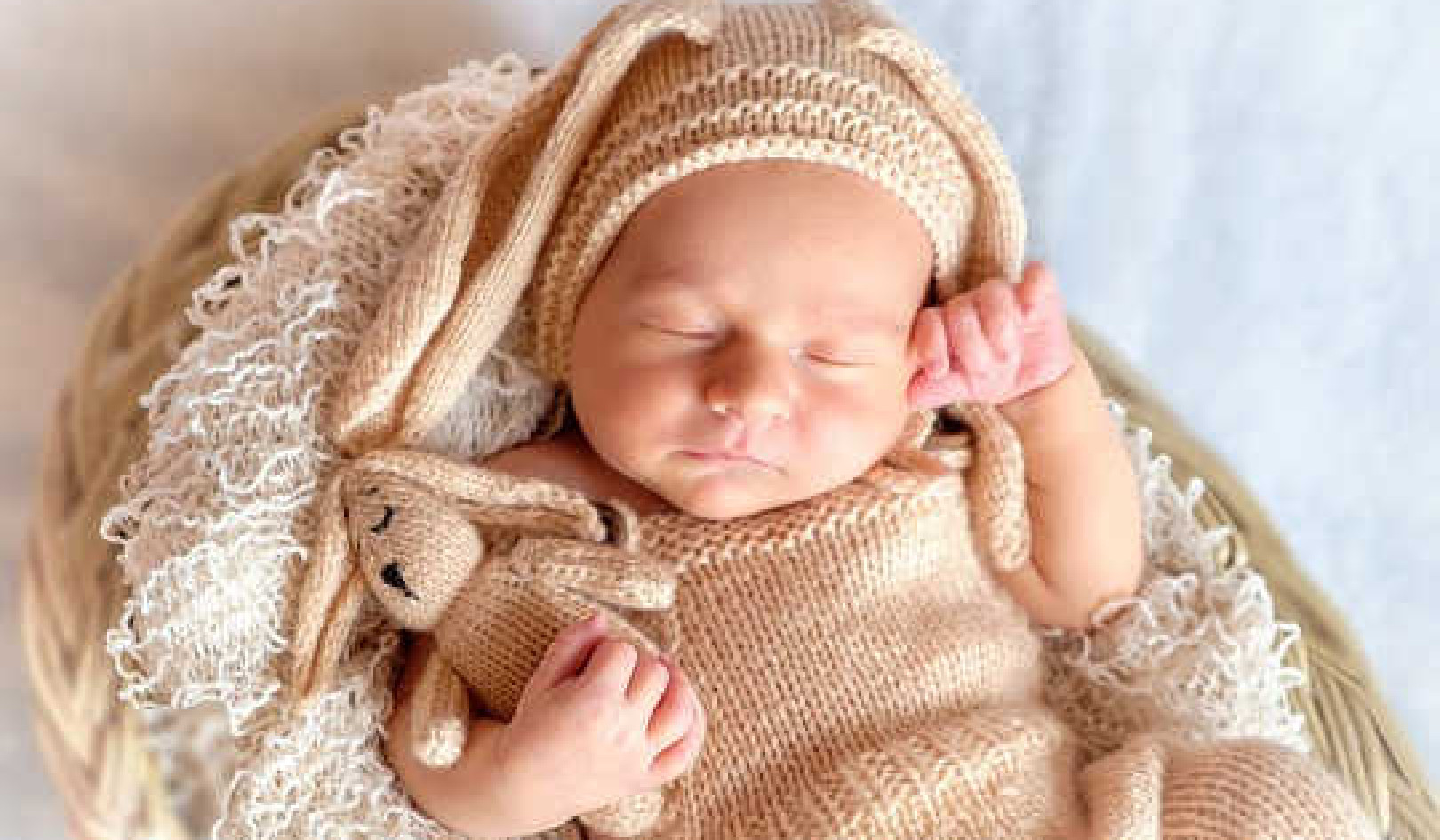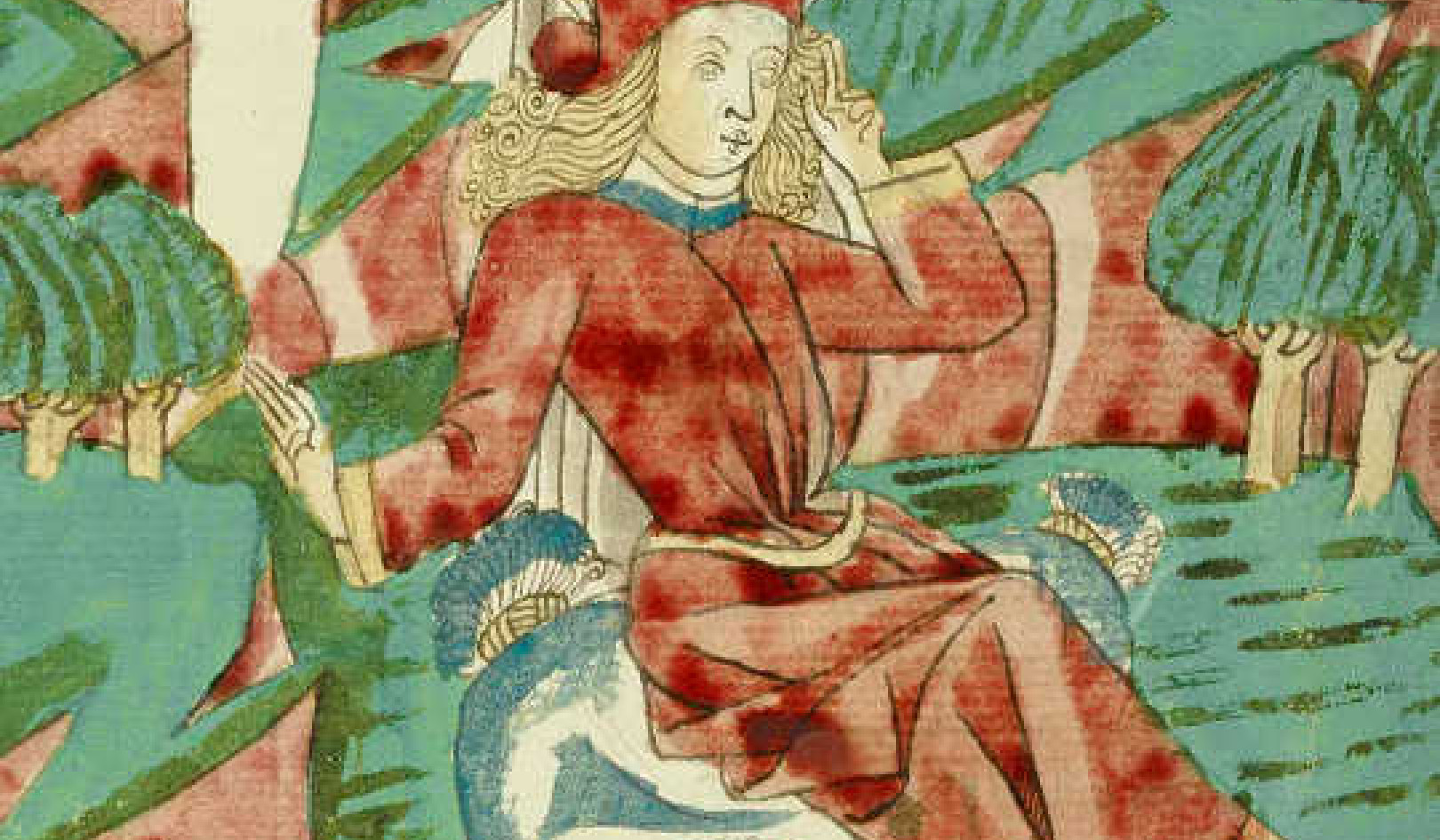
We call such things as life and death “opposites,” but this is not altogether a satisfactory name seeing that it implies a state of opposition and hence of conflict. But life and death are in conflict only in the mind which creates a war between them out of its own desires and fears.
In fact life and death are not opposed but complementary, being the two essential factors of a greater life that is made up of living and dying just as melody is produced by the sounding and silencing of individual notes.
Life feeds on death, its very movement is only possible and apparent because of the continuous birth and death of cells, the absorption of nourishment and the discarding of waste, which in its turn provides a fertile soil from which new life can spring. For vitality is a cycle whose completion requires both upward movement and downward movement just as light cannot manifest itself without the whole motion of the light wave from start to finish; if these waves could be divided into half or quarter waves the light would disappear.
So also in the biological realm we have two opposite yet complementary sexes, male and female; beings are divided in this way in order to reproduce themselves, and the meaning of man and woman is the child without which there would be no point in having two sexes at all. Thus they are the two legs upon which our life stands, and when one is cut away the whole collapses.
Misdirected Longing
These so-called opposites present man with a difficult problem, for there is a longing in his heart for eternity and victory over death, a longing which is misdirected because in life as he knows it he himself is one of those opposites and thus is apparently set against something over which he can never triumph. For the foundation of our life as we know it is the opposition between ourselves and the universe, between that which is “I” and that which is not “I.”
Here again are two things which are complementary rather than opposed, for it is obvious that the self cannot exist without the universe and that the universe cannot exist without the multitude of selves and entities of which it is composed. But from the point of view of suffering, struggling man this fact, however obvious, is purely abstract.
Moreover, the existence of the universe depends apparently only on the impersonal multitude of selves of which there is an inexhaustible supply; it does not depend on any particular self. Indeed, nature seems astonishingly callous and wasteful in its treatment of individual selves, and it is therefore not surprising that man should rebel when treated with the same callous disregard for individuality as is the insect.
It even seems that here there is an actual conflict which does not exist solely in the mind, for with one hand nature lavishes the most amazing skill on the creation of individuals and even on their preservation, while with the other it treats them as if they were no more than the dust from which they rose.
But if one or the other of nature’s hands were tied the world would either choke itself from overabundance of life or be altogether depopulated. Nevertheless, from the individual point of view the process is wasteful and callous. Man might assist nature to a greater economy by regulating the reproduction of his own kind and by adapting himself to nature instead of trying to fight it.
Universal Consciousness
Whatever may be said about the need for basing one’s attitude to life on a universal as distinct from a personal point of view, the difficulty is that in the ordinary way man does not feel universal. His center is himself and his consciousness peeps out through windows in a wall of flesh; he does not feel his consciousness as existing in things outside of himself, seeing through others’ eyes or moving with others’ limbs. And the world outside that wall is threatening, so much so that he does everything possible to fortify himself against it, surrounding himself with a barricade of possessions and illusions to hide himself from the world and the world from him.
Within this fortress he strives to guard and preserve the thing he calls his life, but he might as well try to imprison sunlight in a room by pulling down the blind or trap wind by shutting the door. To enjoy wind you must let it blow past you and feel it against bare flesh; the same is true of time, for the moment has always gone before it can be seized, and the same is true of life which not even this wall of flesh can hold forever. To feel and understand it you must let it blow past you like the wind as it moves across the earth from void to void.
But this is intolerable. It means tearing down the barricade, giving up every security, opening windows both sides of the room so that the draft sweeps through, knocks down the vases, scatters our papers, and upsets the furniture. This is too great a price to pay for having the dust and cobwebs blown out of our souls. Besides, we shall catch cold and sit shivering and sneezing till we go crazy.
From thy nest every rafter
Will rot, and thine eagle-home
Leave thee naked to laughter
Till leaves fall and cold winds come.
So we keep the windows closed and shuttered until we die from suffocation, overwhelmed by stagnant air.
The Fear of Fear
This is a malady as old as life, born of what Keyserling? calls “Original Fear” whose outward aspect psychologists term the “pleasure-pain principle.” For as the snail and the tortoise withdraw into their shells, man retires into his castle of illusion.
But it is curious that whereas the snail and the tortoise often come out of their shells, man hardly ever comes out of his castle, because he seems to have a much more acute sense of his personal identity, of his distinction from the rest of the universe. The greater the sense of distinction, the greater the tension between the two and the more the pairs of opposites war together in the soul.
This tension we call unhappiness, but it is not suggested that it will be overcome by the abolition of “Original Fear,” which is in itself a most valuable instinct. If we liked pain as much as pleasure we might shortly become extinct, for it is only this original fear of pain which urges us to self-preservation.
Here again we have a pair of opposites, love and fear or like and dislike, mutually essential components of the faculty of feeling, for who does not fear neither loves nor feels. But note the term original fear. Man’s difficulty is that his fear is seldom original; it is once or many times removed from originality, being not just simple fear but the fear of being afraid.
Creative Tension vs. Destructive Tension
There are two kinds of tension, creative and destructive, the first as when a string is tensed to produce music and the second as when it is tensed to be broken. Between the opposites there must also be tension if they are to produce life. Of their nature they must move in opposite directions, and yet they must be held together by a relationship and a meaning.
By centrifugal force the earth speeds away from the sun; by gravity it is drawn toward it, and hence it moves around it in a circle and is neither frozen nor burned. Thus the movement of the opposites away from each other is original fear, while the tie that binds them is original love. The result is creative tension.
But man is not just afraid; he fears the tension caused by his original fear so that his fear is increased. The tension is also increased, growing all the more frightening until it becomes destructive instead of creative. The tie is stretched to breaking point, whereat the opposites tend to shoot apart into utter isolation.
Thus when the tension of original fear is accepted man can swing happily upon his orbit; but should he try to escape from that fear he simply adds one fear to another and one tension to another, which is a process that may go on forever. Like a fly caught in a spider’s web, the more he struggles, the more he becomes involved.
In this way the tension of the opposites is turned by man into destructive conflict. Clinging to one and fleeing from the other he simply incites the one he flees to assert itself the more.
To hate death and change is trying to make life deathless and changeless, and this is a rigid, moribund, living death. Hence the saying, “Cowards die a thousand deaths, but the valiant die but once.” For in holding to pleasure in fear of pain man starts the tension, but the real trouble begins when he tries to get rid not only of the pain but of the tension as well, giving himself two enemies instead of one.
That pain should arouse fear is as natural as that fire should arouse warmth. But let it stay there, for if we run from our fear it becomes panic, and this is the entrance to a bottomless abyss of self-deception and misery.
Admitting and Accepting Fear
Man does not like to admit to himself that he is afraid, for this weakens his self-esteem and shakes his faith in the security of his ego. To accept fear would be like accepting death, so he runs from it, and this is the great unhappiness. Sometimes it is expressed in sheer unbridled terror, but more often it is a half-concealed, gnawing anxiety moving in vicious circles to an ever-greater intensity. It would have been better to say in the first place, “I am afraid, but not ashamed.”
Therefore in struggling with the opposites man perpetually deceives himself. The prizes he tries to pluck away from life and keep solely for his personal use turn moldy because he has severed them from their roots, and nothing that is isolated can live, since the two most important characteristics of life are circulation and change.
On the other hand, the troubles which he tries to avoid are the only things which make him aware of his blessings, and if he would love the latter he must fear the former. But he is afraid of fear.
These two things make him respectively frustrated and worried, driving him more and more into an attitude of isolation, of separateness from and hostility toward the rest of life, standing huddled and miserable between the devil of circumstances and the deep sea of his own unpredictable and unruly emotions.
And in this isolation his spirit perishes. He does not understand that he who is free to love is not really free unless he is also free to fear, and this is the freedom of happiness.
Copyright ©2018 by Joan Watts and Anne Watts.
Printed with permission from New World Library
www.newworldlibrary.com
Article Source
The Meaning of Happiness: The Quest for Freedom of the Spirit in Modern Psychology and the Wisdom of the East
by Alan Watts
 Deep down, most people think that happiness comes from having or doing something. Here, in Alan Watts’s groundbreaking third book (originally published in 1940), he offers a more challenging thesis: authentic happiness comes from embracing life as a whole in all its contradictions and paradoxes, an attitude that Watts calls the “way of acceptance.” Drawing on Eastern philosophy, Western mysticism, and analytic psychology, Watts demonstrates that happiness comes from accepting both the outer world around us and the inner world inside us — the unconscious mind, with its irrational desires, lurking beyond the awareness of the ego.
Deep down, most people think that happiness comes from having or doing something. Here, in Alan Watts’s groundbreaking third book (originally published in 1940), he offers a more challenging thesis: authentic happiness comes from embracing life as a whole in all its contradictions and paradoxes, an attitude that Watts calls the “way of acceptance.” Drawing on Eastern philosophy, Western mysticism, and analytic psychology, Watts demonstrates that happiness comes from accepting both the outer world around us and the inner world inside us — the unconscious mind, with its irrational desires, lurking beyond the awareness of the ego.
Click here for more info and/or to order this paperback book and/or download the e-textbook edition.
About the Author
 Alan Watts (January 6, 1915 – November 16, 1973) was a British-born American philosopher, writer, speaker, and counterculture hero, best known as an interpreter of Asian philosophies for a Western audience. He wrote over 25 books and numerous articles applying the teachings of Eastern and Western religion and philosophy to our everyday lives.
Alan Watts (January 6, 1915 – November 16, 1973) was a British-born American philosopher, writer, speaker, and counterculture hero, best known as an interpreter of Asian philosophies for a Western audience. He wrote over 25 books and numerous articles applying the teachings of Eastern and Western religion and philosophy to our everyday lives.
More books by this Author
at InnerSelf Market and Amazon



























